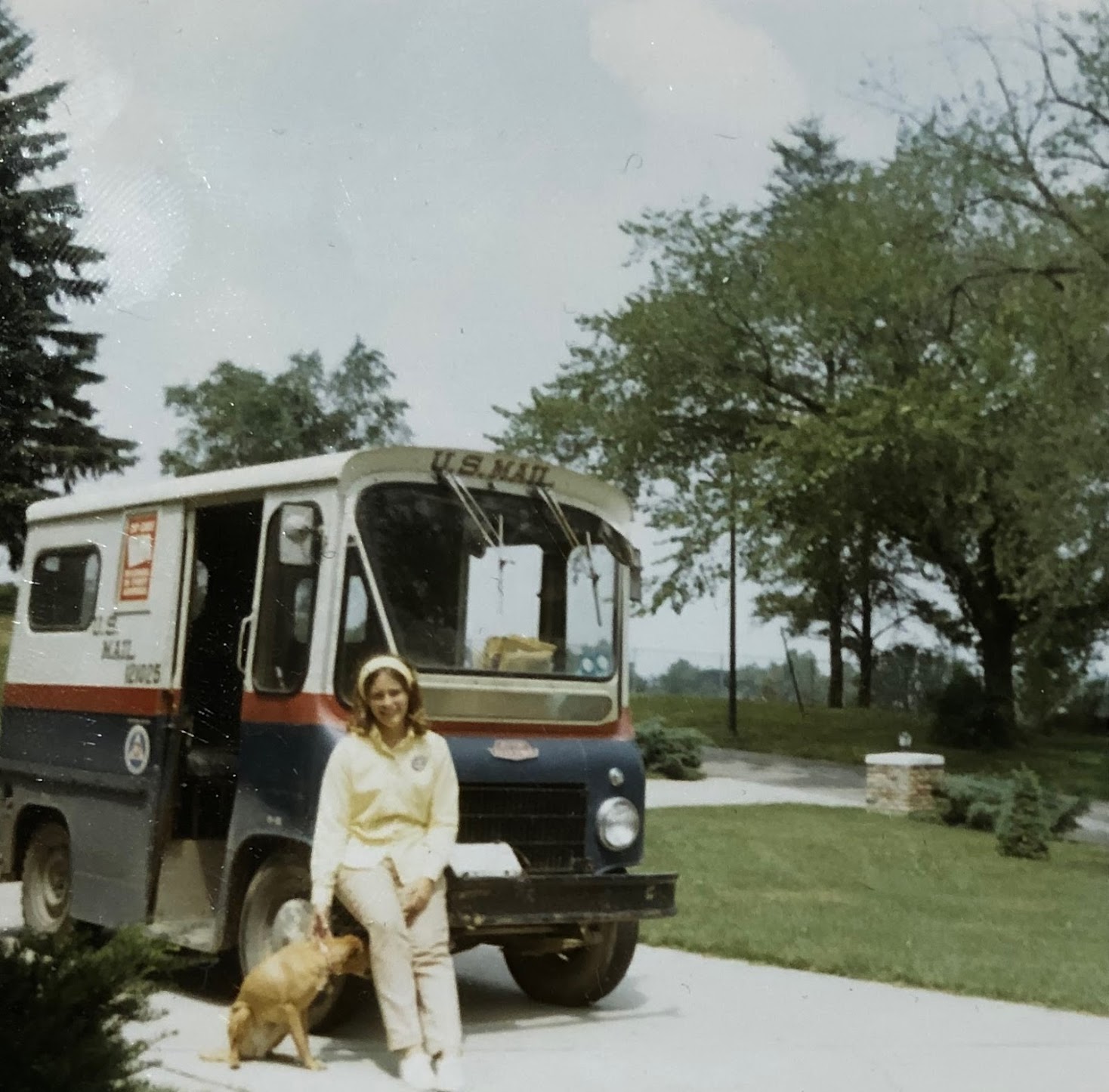It Was The Summer of ‘69
Summer jobs can be a lot of different things. They can be a rite of passage. A learning experience. A wild ride. Dreadfully dull. And just about everything in-between.
When I was an undergraduate student at Carlton (check this?) summer break started a bit later for us than other schools, so a lot of the higher-paying summer jobs were already taken. I had to get creative.
So I took the Civil Service exam. And I qualified for a job as a summer substitute mail carrier.
At that time I was also the first woman to pass the driving test for that wonderfully unwieldy mail truck. It was a manual, and basically a big metal block on wheels, but my driving instructor couldn’t find one thing that I couldn’t make that beast do. Except for fly, maybe. Never tried that one.

My purpose was to fill in for regular mail carriers that were taking a summer vacation, and so I did a lot of driving and A LOT of walking in different neighborhoods all around Omaha. I noticed that the more affluent neighborhoods were mostly driving delivery routes, while the parts of town that were considered rough or lower-income areas were primarily walking routes. Walking those routes gave me a chance to see these neighborhoods from a new perspective.
When I started walking the routes, I noticed a group of local people would sort of walk along with me, making sure I was okay, offering support of any kind.
The houses I delivered to would offer me lemonade, tea, water, and shade. It was such a marked difference from everything I’d heard about these neighborhoods.
What really struck me was how much we have in common. Those residents cared about my welfare the way my parents would. They looked out for each other, and they looked out for me.
I couldn’t help thinking: if only we took the time to know each other better.
That job carrying mail in the summer of 1969 laid the groundwork for a big shift for me to experiential learning, where you can expand on what you learn in books, where you can get directly involved and learn from experience where that gap between the printed page and the real world lies. And then bridge it. I think about that a lot.
Recently, while discussing tuition hikes and summer jobs, a Student Regent said, “I think of this [tuition increase] in terms of the number of days I would have to work to make up the difference… I would feel better knowing the Regents would spend that same amount of time trying to figure out how to get our tuition down.”
Students today have the highest tuition and debt rates ever. They have to work more and more just to get by. Something’s wrong with this picture. Maybe it’s time we think more about what it means to walk their route and what we can do to support them.
*Barbara’s thoughts as written by Kate based on weekly (fascinating) conversations.


0 Comments